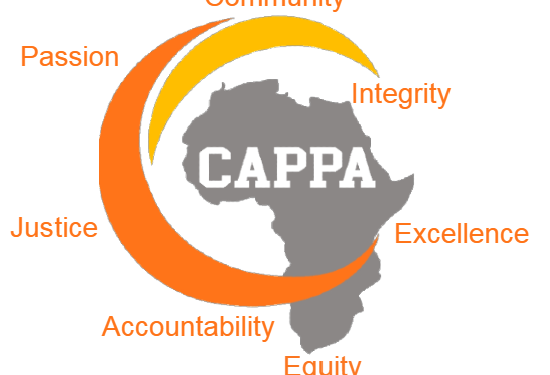The Corporate Accountability and Public Participation Africa (CAPPA) has urged the federal government and the Trustees of the Nigerian Education Loan Fund (NELFUND) to abandon proposed plans that would restrict student loan access to courses deemed “high demand” and “practical” for national development.
In a statement released by CAPPA’s Media and Communication Officer, Robert Egbe, the organisation described the proposed policy as discriminatory, a reflection of the growing commercialisation of public education, and a betrayal of NELFUND’s original mandate to ensure equitable access to higher education for all Nigerians.
The backlash follows comments by NELFUND’s Managing Director, Akintunde Sawyer, during a virtual Student Loan Masterclass hosted by The Renewed Hope Global.
Sawyer announced a potential policy shift prioritising loans for students in disciplines like engineering, medicine, and information technology—fields viewed as exportable and economically viable. Meanwhile, courses such as language studies and other humanities were deemed less relevant to national development and flagged for reduced prioritisation.
CAPPA voiced strong opposition to the proposed shift, arguing that it would marginalise students pursuing disciplines in the humanities, arts, and social sciences, thereby perpetuating systemic inequalities in education.
“This unfair attempt to narrow the policy’s beneficiaries comes at a time when tuition fees for so-called ‘marketable’ courses have skyrocketed from ₦19,000 to over ₦200,000 in public institutions, pricing poor students out of education or forcing them into exploitative means of survival,” the statement read.
CAPPA further argued that students who graduated from courses deemed economically viable are finding it hard to get jobs in the country.
“Ironically, even graduates from the purported economically viable fields are struggling in Nigeria’s job market, where the unemployment rate remains at an all-time high, and the minimum wage is too low to stem the tide of the Japa Syndrome, a survival trend that has seen Nigerian youth, workers and professional, flee the country in droves in search of better opportunities abroad.
“If even these “practical” fields offer no secure future within the country, what is the rationale behind sidelining other disciplines? If the state cannot create jobs or maintain an economy that supports diverse intellectual dreams and pursuits, why should students bear the consequences of its failures and shortcomings?” queried the CAPPA Statement.
The organisation also criticised the assumption that students in “practical” fields are guaranteed economic stability, pointing to Nigeria’s persistently high unemployment rates and the worsening “Japa Syndrome,” where young Nigerians migrate in search of better opportunities.
Zikora Ibeh, CAPPA’s Senior Programme Manager for Research and Policy, warned that limiting access to loans based on perceived economic value undermines the diversity of academic disciplines essential for critical thinking, economic growth, and national development.
“By tethering education to perceived economic value, the state is effectively telling us that learning only matters if it can be sold on the open market. This narrow focus on practicality will stifle intellectual diversity and further disenfranchise young Nigerians,” Ibeh stated.
The organisation drew parallels to past regressive policies, such as the removal of history from secondary school curriculums in 2009, which deprived generations of students of critical opportunities to explore their heritage.
CAPPA also expressed concern that the proposed changes could undermine the teaching profession by devaluing certain fields of knowledge. They noted that this could exacerbate challenges like low teacher morale, brain drain, and the diminishing appeal of teaching as a career.
In addition, CAPPA highlighted the chronic underfunding of Nigeria’s education sector, citing the proposed ₦3.52 trillion allocation for 2025, which amounts to just 7.3% of the national budget—far below the globally recommended 15-20%.
The organisation called on Nigerian students, academics, labour unions, and civil society to reject the proposed policy. It urged the government and NELFUND managers to rethink their approach, advocating for a bold, inclusive vision that recognises the value of every discipline in advancing national development.
CAPPA further recommended increased budgetary allocation to education, investment in vocational training, and development of infrastructure such as electricity and transportation to create a thriving environment for learning and innovation.
“This divisive approach risks leaving Nigerian students further behind. It’s time for a policy that uplifts, not one that excludes,” CAPPA concluded.

